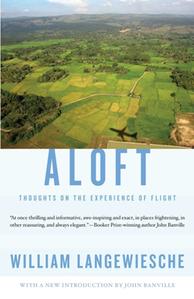 William Langewiesche, a magazine writer and author "who forged complex narratives with precision-tooled prose that shed fresh light on national security, the occupation of Iraq and, especially, aviation disasters," died on June 14, the New York Times reported. He was 70. Langewiesche was an international correspondent for Vanity Fair, a writer-at-large for the New York Times Magazine, and a national correspondent for the Atlantic. He also wrote several books.
William Langewiesche, a magazine writer and author "who forged complex narratives with precision-tooled prose that shed fresh light on national security, the occupation of Iraq and, especially, aviation disasters," died on June 14, the New York Times reported. He was 70. Langewiesche was an international correspondent for Vanity Fair, a writer-at-large for the New York Times Magazine, and a national correspondent for the Atlantic. He also wrote several books.
From 1999 to 2008, his pieces were finalists for the National Magazine Award, which he won twice: in 2007 for "Rules of Engagement," about the killing of 24 unarmed civilians by U.S. Marines in 2005 in Haditha, Iraq; and in 2002 for "The Crash of EgyptAir 990," about a flight that went down in the Atlantic Ocean in 1999.
"At his best there's a sort of cinematic omniscience in the way he writes," Cullen Murphy, his longtime editor at the Atlantic and Vanity Fair, said in an interview. "And so you feel almost as he feels, with your face pressed up against the window watching something unfold, often very rapidly, and often wishing that things would unfold very differently but knowing there's nothing that can be done."
Langewiesche learned to fly as a boy and worked as a commercial pilot early on to support his literary ambition, the Times noted, adding that "he drew on his aviation expertise in a number of articles and books that laid out highly technical subjects in lucid prose," including Fly By Wire: The Geese, the Glide, the Miracle on the Hudson, about Capt. Chesley B. Sullenberger III's landing of a commercial airliner in the Hudson River in 2009.
His 2002 book, American Ground: Unbuilding The World Trade Center, was based on a three-part series in the Atlantic covering the cleanup after the terrorist attacks of Sept. 11, 2001. Langewiesche's other books include Cutting for Sign (1993), Sahara Unveiled: A Journey Across the Desert (1996), Inside the Sky: A Meditation on Flight (1998), The Outlaw Sea: A World of Freedom, Chaos, and Crime (2004), The Atomic Bazaar: The Rise of the Nuclear Poor (2007), Aloft: Thoughts on the Experience of Flight (2010), and Finding the Devil: Darkness, Light, and the Untold Story of the Chilean Mine Disaster (2012).
In a tribute, Cullen Murphy wrote in the Atlantic: "A certain cast of mind characterizes Langewiesche's work for the Atlantic as well as for Vanity Fair and the New York Times Magazine. He was skeptical about most political and social institutions, not because they weren't needed but because they were fragile and self-serving. But he was not skeptical about knowledge and expertise, nor about the capacity of ordinary people to transcend circumstances and institutions with humanity and ingenuity. Those people peer out from between the lines of everything he wrote."

